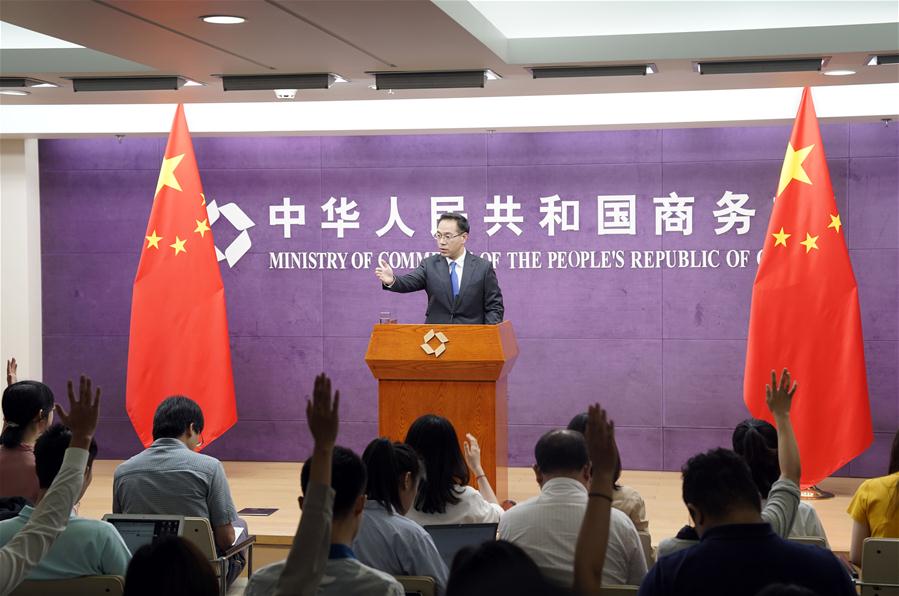China vows countermeasures if U.S. puts new tariffs on Chinese goods

Gao Feng, spokesperson of China's Ministry of Commerce, gestures during the ministry's press conference in Beijing, capital of China, Aug. 22, 2019. China's Ministry of Commerce Thursday urged the United States to correct its faulty practices in anti-subsidy probes against Chinese products after the World Trade Organization (WTO) recently again ruled that U.S. countervailing measures were inconsistent with WTO rules. (Xinhua/Jin Liangkuai)
BEIJING, Aug. 22 -- China's Commerce Ministry said Thursday that the country would have to take countermeasures if the United States imposes new additional tariffs on Chinese goods.
This came after the United States threatened an additional tariff of 10 percent on about 300 billion U.S. dollars of Chinese imports.
China's position is consistent and clear. "Trade wars produce no winners. China does not want a trade war, but it is not afraid of one, and it will fight one if necessary," Ministry of Commerce spokesman Gao Feng told a press conference.
Although the United States announced a plan to postpone the tariff hike on some Chinese goods, any new U.S. tariff hike will lead to an escalation of trade frictions unilaterally, Gao said.
"If the United States acts arbitrarily, China will have to take countermeasures," he said.
The tariff measures will damage the interests of both China and the United States, and may also have a recessionary impact on the global economy, Gao said.
"If the United States goes ahead willfully, it will have a serious negative impact on U.S. businesses and consumers," Gao said. "Some U.S. financial institutions have predicted that the tariffs would cost an ordinary U.S. family 1,000 U.S. dollars a year on average."
"At the same time, the delay in imposing tariffs on some goods fully demonstrate that there are no winners in a trade war," he said. "If the trade frictions escalate, U.S. consumers and businesses will suffer heavy losses."
Gao expressed the hope that the U.S. side would stop its erroneous practice of imposing tariffs, meet halfway with China, and find a solution to the problem based on equality and mutual respect.
He said that the U.S. move would pose certain challenges to China's exports and economy, but the impact is fully controllable in general.
"The Chinese side is confident, determined and capable of meeting various challenges and maintaining the sound and stable development of its economy and foreign trade," he added.
Chinese and U.S. chief trade negotiators held a phone conversation on Aug. 13 and agreed to hold another phone conversation in two weeks.
"The two negotiating teams have maintained communication," Gao said.


 +86-13460933678
+86-13460933678